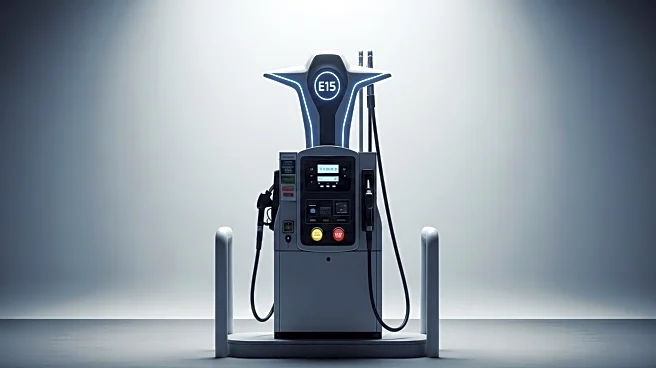What is the story about?
What's Happening?
The California Legislature has passed a bill authorizing the immediate sale of E15, a gasoline blend containing 15% ethanol. This legislative move, marked by rare bipartisan support, now awaits the signature of Governor Gavin Newsom. Despite the legislative approval, Newsom's administration has expressed strong opposition to the bill, citing concerns over additional costs to the California Department of Food and Agriculture (CDFA) for enforcing petroleum product quality standards. The CDFA would require new equipment and resources to sample and test E15, potentially leading to an increase in motor vehicle fees, which contradicts the administration's goal of reducing gas prices. The bill's proponents argue that E15 could lead to significant cost savings for consumers, with studies suggesting potential savings of 20 cents per gallon, amounting to $2.7 billion statewide. The Renewable Fuels Association and other industry groups have urged Newsom to sign the bill, highlighting benefits such as healthier air and better engine performance.
Why It's Important?
The decision on E15 is significant for California's energy and environmental policy, as it could influence fuel pricing and emissions standards. If signed into law, the bill could provide economic relief to consumers facing high gas prices, while also supporting the ethanol industry and corn growers. However, the administration's concerns about increased state spending and regulatory integrity highlight the complexities of implementing new fuel standards. The outcome of this decision could set a precedent for how California balances economic, environmental, and regulatory considerations in its energy policies. Stakeholders such as biofuel producers and environmental groups are closely watching the decision, as it could impact the state's approach to renewable energy and emissions reduction.
What's Next?
Governor Newsom has until October 12 to decide on the bill. A veto could lead to backlash from both Democrats and biofuel producers, while approval would require addressing the fiscal concerns raised by his administration. The California Air Resources Board (CARB) is expected to continue its review of E15, assessing its environmental impacts. This process involves extensive studies and evaluations, which could delay the implementation of E15 even if the bill is signed. Newsom's decision will likely influence future legislative efforts related to fuel standards and renewable energy in California.















